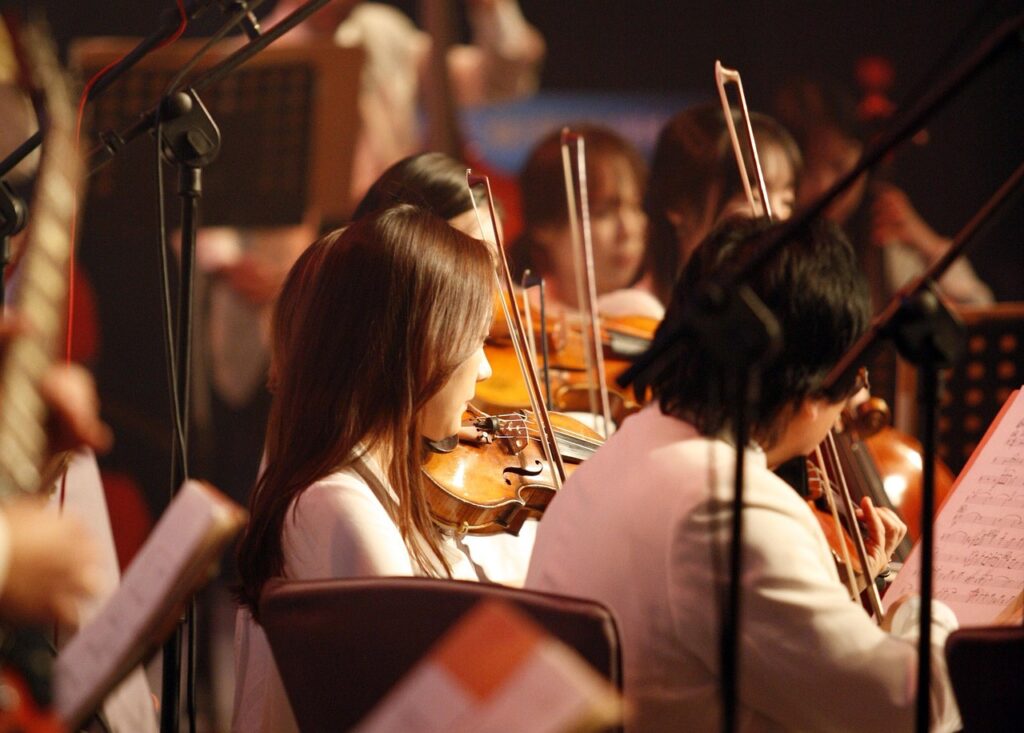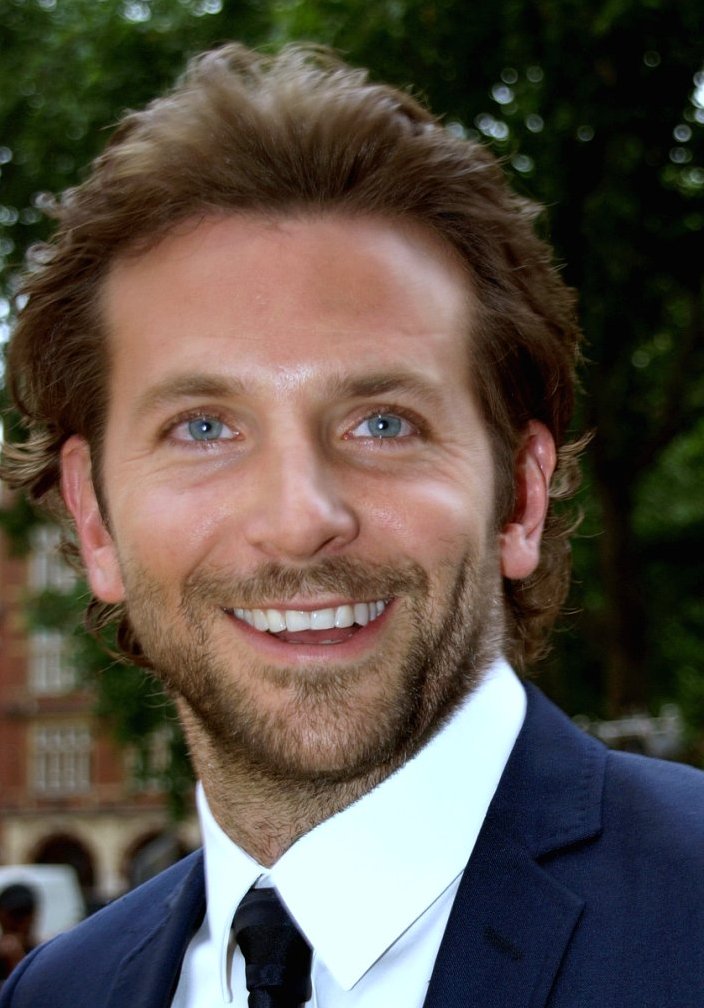
The world of classical music bids farewell to a titan. Christoph von Dohnanyi, the internationally renowned conductor whose meticulous interpretations and profound influence graced stages across the globe, died on Saturday, Sept. 6, 2025, in Munich. He was 95 years old, having passed just two days before what would have been his 96th birthday, leaving an indelible mark on orchestras and audiences worldwide.
Best known for his long and harmonious tenure at the helm of the Cleveland Orchestra, a period widely celebrated as one of classical music’s most felicitous partnerships between an ensemble and its leader, Mr. Dohnanyi was also a sought-after guest conductor with major symphonies and opera companies. His broad historical compass and unwavering fealty to composers’ intent established him as a figure of immense respect and admiration within the classical community.
His passing, announced by the Cleveland Orchestra, prompted an outpouring of tributes from institutions and individuals who recognized his unique musical perspective and the deep mutual respect he cultivated with musicians and audiences alike. Mr. Dohnanyi’s artistry and dedication, forged through a life of both personal triumph and profound loss, resonated deeply, contributing significantly to the cultural landscape of his time and cementing his place as one of the great conductors of his generation.
1. **A Conductor’s Final Bow: The Passing of a Luminary**
Christoph von Dohnanyi’s death in Munich on Sept. 6, 2025, at the age of 95, marked the end of an era for classical music. The news, conveyed by the Cleveland Orchestra, underscored the international esteem in which he was held. At the time of his passing, he carried the prestigious title of the ensemble’s music director laureate, a testament to his enduring impact on one of the world’s foremost orchestras.
Beyond his significant association with Cleveland, Mr. Dohnanyi was also honored as the honorary conductor for life of the Philharmonia Orchestra in London, where he served as principal conductor from 1997 to 2008. His reputation was built upon meticulous, unfussy interpretations and a wide-ranging repertory that garnered widespread acclaim. Critics praised his disciplined, transparent, and unsentimental yet deeply committed approach to the podium, noting how orchestras played with “reflexive power and clarity for him.”
Messages of condolence and tribute highlighted his profound influence. André Gremillet, President & CEO of The Cleveland Orchestra, affirmed that Mr. Dohnanyi was “a superb conductor and Music Director, respected the world over,” acknowledging that “his storied family history gave him a unique musical perspective.” Markus Hinterhäuser, artistic director of the Salzburg Festival, hailed him as “a grand seigneur among the great international conductors to whom the Salzburg Festival owes its world reputation,” encapsulating the global appreciation for his contributions.

2. **Roots of a Maestro: A Family Forged in Resistance**
Born in Berlin on Sept. 8, 1929, Christoph von Dohnanyi inherited a legacy of distinction and courage. His family tree boasted illustrious figures: his paternal grandfather, Erno Dohnanyi (known in Germany as Ernst von Dohnanyi), was a well-regarded Hungarian composer. His father, Hans von Dohnanyi, was a prominent lawyer within the German ministry of justice, while his mother, Christine (Bonhoeffer) Dohnanyi, a botanist, was the sister of the esteemed Protestant theologian Dietrich Bonhoeffer.
This prominent lineage was, however, overshadowed by the dark currents of Nazism during his childhood. His parents, uncle, and other family members actively opposed the rise of the Nazi regime. Hans von Dohnanyi played a crucial role, helping to supply money and papers to Jews fleeing Germany and, in March 1943, was central to an unsuccessful plot to assassinate Hitler. Christoph, then a boy, felt a sense of protection due to his father’s influential position, a feeling that would soon be shattered.
In April 1943, this fragile sense of security collapsed with the arrest of Christoph’s parents and uncle by the SS. Though his mother was released not long afterward, Hans von Dohnanyi and Dietrich Bonhoeffer were imprisoned, subjected to torture, and ultimately hanged in the spring of 1945. These wrenching losses, endured when Christoph was just 15, left an indelible mark.
Speaking in a 2002 NPR interview, Mr. Dohnanyi made a rare public reference to the lasting effects of his boyhood trauma: “What I lived through when I was a child, of course, has affected the development of my character, personality and so on, in positive ways, also certainly in negative ways.” He elaborated, “You are more suspicious. You are more prepared that terrible things might happen. And it develops also your attachment to art, you know, because art, like religion and so on, is some kind of a help in those days.” This profound early experience undeniably shaped his deeply cerebral and reflective approach to his craft, infusing his musical interpretations with a unique depth and understanding.

3. **The Path to the Podium: Education and Early Musical Training**
Christoph von Dohnanyi’s early life, while marked by familial tragedy and wartime disruption, also fostered a burgeoning passion for music. He began piano lessons as a boy, though his studies were inevitably interrupted by the tumultuous years of World War II. After the war concluded, he initially veered away from a direct musical path, choosing to enter the University of Munich to study law.
This decision was rooted in a strong sense of civic duty, as he told The Boston Globe in 2013: “In those days, we thought even if you are maybe inclining to be an artist or go into music, the most important thing is to build your country up again.” However, the magnetic pull of music proved irresistible, and it soon won out over his legal aspirations. He transferred to Munich’s Hochschule für Musik und Theater München, where he immersed himself in composition, piano, and conducting, ultimately winning a top prize for his efforts in both composing and conducting.
His musical education extended across continents. Making his way to the United States, he pursued further studies in composition with his distinguished grandfather, Ernst von Dohnanyi, who was then teaching at Florida State University in Tallahassee. It was at Tanglewood, in Massachusetts, that Christoph honed his conducting skills under the tutelage of the legendary Leonard Bernstein, a formative experience that undoubtedly contributed to his development as a conductor of singular vision and capability.
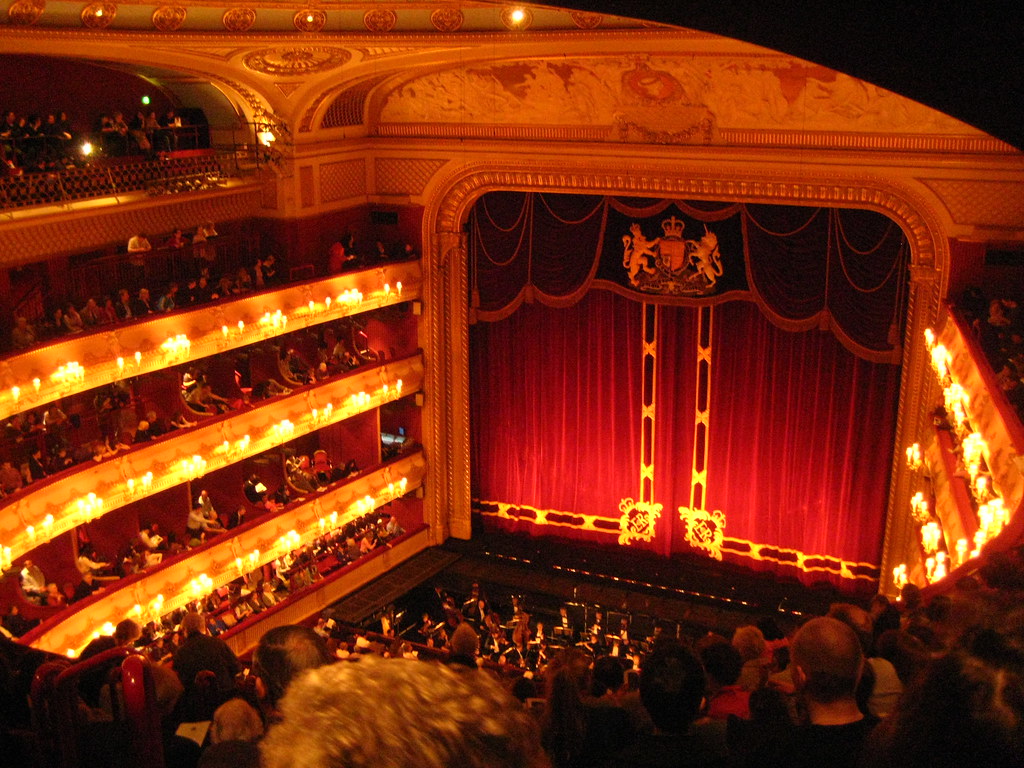
4. **A German Trajectory: Ascent Through Opera Houses**
Returning to West Germany in 1952, Christoph von Dohnanyi embarked on what would become a distinguished and influential career, beginning with a pivotal role as an assistant conductor to Georg Solti at the Frankfurt Opera. This entry into the opera world marked the start of a time-honored trajectory for many German conductors, where practical experience in the theater honed their craft and shaped their leadership.
His professional journey saw him steadily rise through the ranks of Germany’s operatic and symphonic institutions. From 1957 to 1963, he served as the general musical director of the Lübeck Opera. His prowess earned him further appointments, including chief conductor of the Staatstheater Kassel from 1963 to 1966 and the WDR Symphony Orchestra in Cologne from 1964 to 1970. A notable achievement during this period was his conducting of the premiere of Hans Werner Henze’s opera “Der junge Lord” in 1965.
Mr. Dohnanyi’s career continued its upward trajectory when, in 1968, he succeeded Georg Solti at the Oper Frankfurt, holding artistic and music director roles until 1978. During his tenure, he was credited with balancing traditional opera performances with innovative Musiktheater, actively promoting the concept of Regietheater. This forward-thinking approach played a significant role in establishing Oper Frankfurt as a leading house of its time, showcasing his commitment to both artistic excellence and modern interpretation.
Before his eventual move to the United States, he held the significant post of intendant and chief conductor with the Hamburg State Opera from 1977, stepping down in 1984. Notably, his brother, Klaus von Dohnanyi, served as Hamburg’s mayor for most of the 1980s, underscoring the family’s continued prominence in German public life. This period solidified his reputation in Germany as a respected conductor with a comprehensive understanding of the operatic and symphonic repertoire, even if his international renown had yet to fully blossom.

5. **A Fortuitous Arrival in Cleveland: The Surprising Appointment**
Christoph von Dohnanyi’s ascent to the music directorship of the Cleveland Orchestra in 1984 was, by many accounts, a surprising choice. In 1982, when he was named music director designate, he was comparatively unknown in the United States, having built his respected career primarily within Germany’s opera houses. The Cleveland Orchestra itself had been searching for a successor to Lorin Maazel for more than two years, and the selection process was keenly observed within the classical music world.
Yet, a single, auspicious week as a guest conductor in Cleveland in December 1981 proved to be the turning point. During this week, Mr. Dohnanyi led concerts featuring works by Bartok and Dvorak, which were met with outstanding success. His performances appeared to swiftly convince the majority of the orchestra’s personnel, and subsequently its board, that he was indeed the right individual to lead the distinguished ensemble into its next chapter.
Mr. Dohnanyi himself recalled the warm reception with a characteristic humility. He told The New York Times in 1984, reflecting on the conclusion of that pivotal week: “Normally, one or two or five musicians come to say goodbye.” He continued, “In this case, at least 20 musicians came. So, I was happy, but I didn’t think anything more about it.” This unexpected outpouring of appreciation from the musicians clearly signaled a powerful and immediate rapport.
Named music director-designate in March 1982, he officially took up his full-time duties at Severance Hall in September 1984. What followed was an 18-year period that would become one of the most harmonious and felicitous marriages between a symphony and its leader in classical music history, transforming the Cleveland Orchestra and solidifying its international standing.
6. **Restoring the Cleveland Orchestra’s Luster: Early Years of Transformation**
Christoph von Dohnanyi’s tenure as music director of the Cleveland Orchestra, spanning from 1984 to 2002, is widely heralded for having restored the ensemble’s famed “sonic sheen.” Many reviewers had observed a certain coarsening of the orchestra’s sound during the preceding Maazel years, and Mr. Dohnanyi’s arrival marked a decisive return to the impeccable precision and transparency for which Cleveland was known, attributes largely cultivated under George Szell.
He was lauded for his distinctive leadership style, characterized by a “tightly disciplined yet strikingly democratic control” over the musicians. This approach was a stark contrast to the “Szell autocracy” that had defined an earlier era, and it fostered a deep mutual respect within the ensemble. Mr. Dohnanyi, keenly aware of the orchestra’s exceptional quality, affectionately referred to it as “this Rolls-Royce of orchestras,” a testament to the skill and dedication of its members. He observed in a 2011 interview that Cleveland musicians were “used to listen to each other very much,” performing as an ensemble of chamber musicians.
Under his stewardship, the Cleveland Orchestra not only reaffirmed its artistic excellence but also broadened its appeal. The ensemble successfully attracted younger audience members, embarked on prolific recording projects, and actively commissioned new works from notable contemporary composers such as the German Matthias Pintscher, the Finnish Magnus Lindberg, and the American Philip Glass. This commitment to both established and new repertoire solidified the orchestra’s relevance and dynamism in the classical music landscape.
One of the early highlights of his tenure was the presentation of the first fully staged opera at Blossom Music Center, the orchestra’s summer home. This ambitious undertaking, a production of Mozart’s “The Magic Flute” in 1985, showcased Mr. Dohnanyi’s comprehensive artistic vision, as he not only conducted but also staged the work. His dedication to setting and maintaining the highest standards was evident in his reflection on his time in Cleveland: “I learned so much from this orchestra. This absolutely boosted my understanding of music and music-making. It was a very important time for me. It set standards. If you go to other places, you know what’s possible. Nobody can tell us it’s not possible if I’ve done it here.” This steadfast commitment laid the groundwork for a truly golden era for the Cleveland Orchestra.
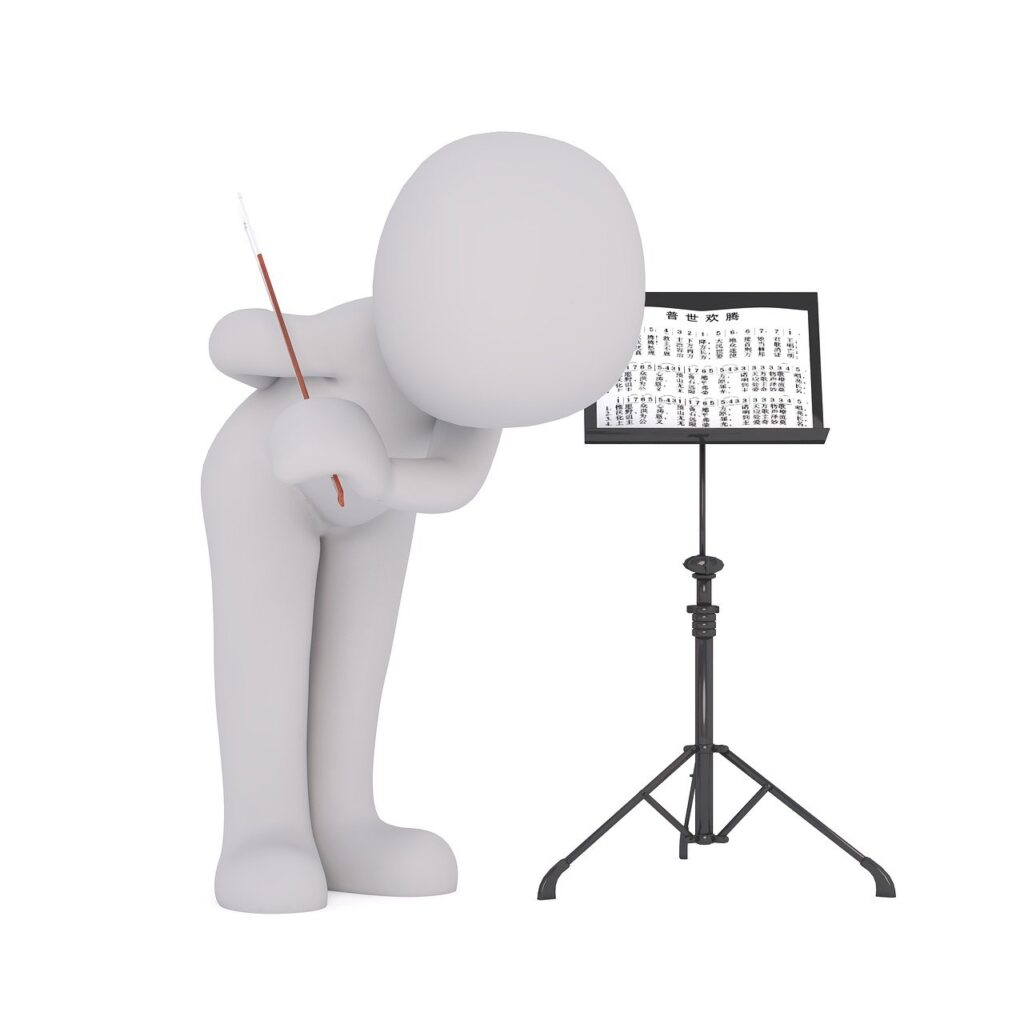
7. **The Precision of Vision: Dohnanyi’s Distinctive Conducting Philosophy**
Christoph von Dohnanyi’s approach to the podium was characterized by a unique synthesis of discipline and collaborative spirit, setting him apart from his predecessors and contemporaries. He was widely esteemed for his “meticulous, unfussy interpretations” and an unwavering “fealty to composers’ intent.” Critics frequently praised his performances for their disciplined, transparent, and unsentimental, yet deeply committed nature, noting how orchestras under his baton played with “reflexive power and clarity for him.” This lucidity ensured that “the texture of every note could be heard plainly,” a hallmark of his sound.
His leadership style at the Cleveland Orchestra was particularly noteworthy, striking a balance between rigorous standards and a democratic ethos. While he demanded a “tightly disciplined” approach, it was achieved through a “strikingly democratic control” over the musicians, a stark contrast to the “Szell autocracy” of an earlier era. Mr. Dohnanyi himself articulated this shift in orchestral leadership, telling The Chicago Tribune in 1995: “These days you have to convince musicians by what you know and what you want, rather than dictate terms to them.” This philosophy fostered a deep mutual respect within the ensemble.
While some critics occasionally found his musical style to be pedantic, the overwhelming consensus lauded the sound he elicited from orchestras for its clarity and a warmth that perhaps belied his deeply cerebral approach. His personal history, marked by the profound losses of his childhood, undeniably infused his interpretations with a unique reflectiveness and intensity. He viewed the Cleveland Orchestra, which he affectionately called “this Rolls-Royce of orchestras,” as an ensemble of chamber musicians, remarking that they were “used to listen to each other very much,” an interaction that elevated their collective artistry.
Tim Page, a classical music critic, aptly described Mr. Dohnanyi’s podium style in 1989, noting it was “neither effusive à la Leonard Bernstein — whose method borders on the balletic — nor is it tautly economical in the tradition of Szell and Fritz Reiner.” Instead, his interpretations were “calculated, disciplined, transparent, unsentimental but deeply committed,” showcasing a reserved yet demonstrative presence that allowed both players and audience to effortlessly follow his precise beat. This measured yet profound control defined his singular artistic voice.
His broad historical compass, encompassing a wide range of repertoire, further underscored his comprehensive musical intellect. While particularly associated with Germanic composers, with his Brahms being especially admired, he eschewed specialization. He declared to Newsday in 1989, “I am very selfish, really. I want to conduct everything. I don’t want to specialize in contemporary music, but I could not live with myself if I did not understand it.” This all-encompassing curiosity and dedication to understanding the full breadth of classical music informed every aspect of his conducting, enriching his performances and deepening his connection to the scores.

8. **Championing the Modern: Innovative Programming and New Voices**
Beyond his masterful interpretations of established repertoire, Christoph von Dohnanyi was a fervent advocate for contemporary music, a commitment that profoundly shaped his tenure in Cleveland and beyond. He was described as an “ardent champion of 20th-century repertoire,” recognizing the vital importance of integrating new works into the classical canon, despite the challenge it sometimes posed for American audiences. This progressive stance was a hallmark of his artistic vision, ensuring that the Cleveland Orchestra remained at the forefront of musical innovation.
His programming in Cleveland was particularly admired for its breadth, spanning from the late 18th century to recent and commissioned works. He was known for a “canny way in which he slipped contemporary music into nearly all his concerts.” For instance, The Independent reported in 1989 that only two of the 26 programs in the orchestra’s 1988-89 season lacked a work by a 20th-century composer, demonstrating his unwavering dedication to modern sounds. This strategic inclusion subtly broadened audience perspectives.
Mr. Dohnanyi explained his thoughtful strategy for introducing contemporary pieces: “First you have to establish you’re not one-sided, you’re able to do Brahms and Mahler as well as contemporary works.” He continued, “And they say: ‘OK, his Mozart was beautiful, why does he choose to do the other stuff? How can he like it? Are we missing something?’ That’s how you get along.” This nuanced approach gradually cultivated an appreciation for the new, making the unfamiliar more accessible through the context of his respected interpretations of classics.
Under his stewardship, the Cleveland Orchestra actively commissioned new works from notable contemporary composers. These included the German Matthias Pintscher, the Finnish Magnus Lindberg, and the American Philip Glass, among many others. This initiative not only contributed significantly to the living body of classical music but also solidified the orchestra’s relevance and dynamism in the global music landscape, reflecting Mr. Dohnanyi’s belief in nurturing the future of the art form.
His commitment to new music extended to his guest conducting roles as well, notably including the premiere of Hans Werner Henze’s opera “Der junge Lord” in 1965 during his time in Germany, and later, the premiere of Henze’s “The Bassarids” at the Salzburg Festival in 1966. These contributions highlighted his consistent belief in the importance of performing and promoting the works of his time, proving that his advocacy for modern repertoire was a career-long endeavor, not merely a Cleveland-specific initiative.
9. **The Ambitious Wagner ‘Ring’ Cycle: A Grand, Unfinished Project**
One of the most ambitious and ultimately challenging artistic undertakings of Christoph von Dohnanyi’s Cleveland tenure was the planned studio recording of Richard Wagner’s epic four-opera “Ring” cycle. Mr. Dohnanyi himself described this project in 1998 as “my only real interesting challenge,” underscoring its profound significance to his artistic legacy and to the orchestra’s reputation. It was conceived as a monumental endeavor that would cement Cleveland’s place in the annals of recorded classical music.
The initial installments, “Das Rheingold” and “Die Walküre,” were released by Decca to wide acclaim in the early 1990s, demonstrating the orchestra’s exquisite sound and Mr. Dohnanyi’s profound understanding of Wagnerian drama. These recordings were intended to be concert performances at Severance Hall, followed by meticulous studio preservation, allowing for the minute acoustic control Mr. Dohnanyi highly valued. The critical success of these first two operas heightened expectations for the completion of the cycle.
However, the project encountered unforeseen difficulties in 1998, as the classical recording market experienced a significant collapse. Decca Records subsequently canceled the project, along with all future recordings by the Cleveland Orchestra, bringing the ambitious “Ring” cycle to an abrupt halt. This decision was a profound disappointment for Mr. Dohnanyi, who believed deeply in the lasting artistic value of completing such a monumental work with the ensemble.
Amid the cancellation, the board proposed a solution to record live concert performances of the two remaining installments, “Siegfried” and “Götterdämmerung.” This suggestion, however, did not align with Mr. Dohnanyi’s artistic standards, as he was unwilling to compromise the precision and acoustic control afforded by studio recordings. He expressed his concern to The Cleveland Plain Dealer, stating, “The reputation of this orchestra is hurt by not completing this project. In the 80 years of the Cleveland Orchestra, this is the major artistic thing that would last.”
Mr. Dohnanyi’s contract with the Cleveland Orchestra concluded in 2002, and he departed without having completed the “Ring” cycle. His tenure ended with the third opera, “Siegfried,” which went unrecorded, leaving the monumental artistic vision partially realized. There was brief talk of his return in 2005 as music director laureate to conduct the final opera, “Götterdämmerung,” but these performances were ultimately canceled, reportedly due to budgetary concerns, thus sealing the fate of the uncompleted project.
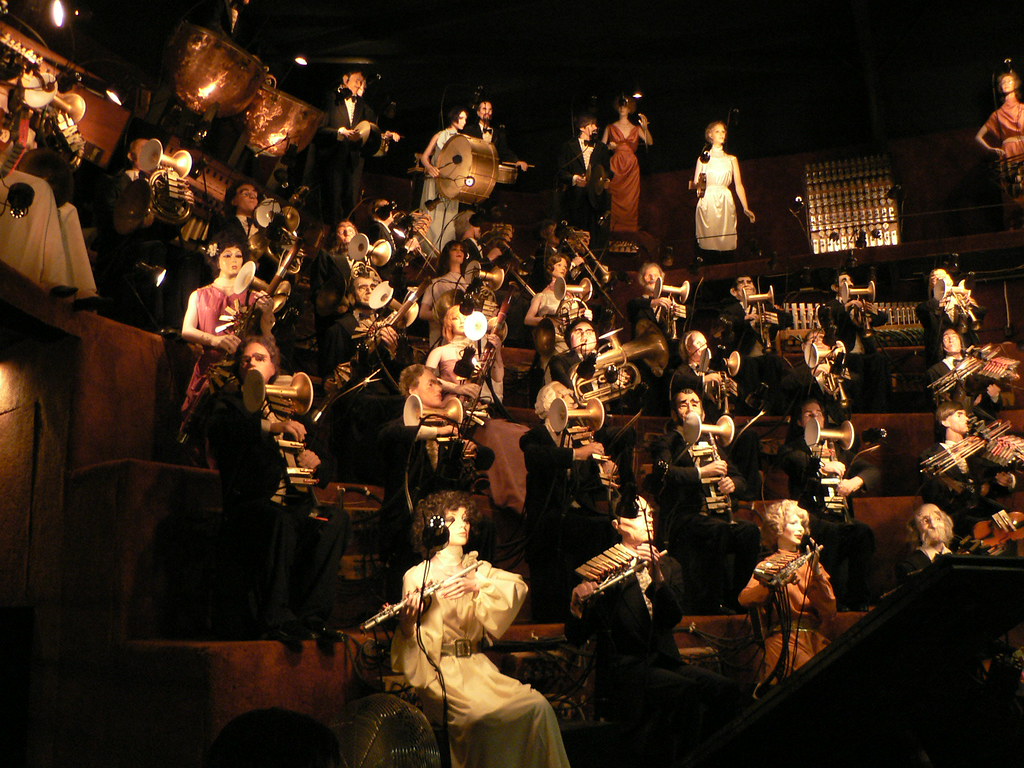
10. **An International Baton: Expansive Guest Conducting and Global Reach**
While his 18-year tenure in Cleveland remains his most recognized achievement, Christoph von Dohnanyi’s career as an international guest conductor was expansive and illustrious, cementing his reputation on stages across the globe. He was a sought-after presence with major symphonies and opera companies, demonstrating a versatility and demand that extended far beyond his directorships. This global footprint underscored his universal appeal and the respect he commanded from musicians and audiences alike.
His distinguished international engagements included holding the title of honorary conductor for life of the Philharmonia Orchestra in London, where he also served as principal conductor from 1997 to 2008. Beyond this significant affiliation, Mr. Dohnanyi regularly led the remaining four of the American “Big Five” orchestras: the Boston Symphony, New York Philharmonic, Philadelphia Orchestra, and Chicago Symphony Orchestra. His appearances with these elite ensembles were considered highlights of New York’s musical life.
His presence was also deeply felt in the European classical music scene. He conducted at the Vienna State Opera and with the Vienna Philharmonic, the Zurich Opera, and the Orchestre de Paris, where he was principal guest conductor. He was a frequent and revered guest at the Salzburg Festival in Austria, making 77 appearances from 1962 through 2014, including the notable premiere of Hans Werner Henze’s “The Bassarids” in 1966.
Mr. Dohnanyi’s extensive opera experience also took him to the world’s great opera houses, including the Royal Opera House, Teatro alla Scala, Deutsche Oper Berlin, Paris Opera, and the Metropolitan Opera, where he made his debut leading Verdi’s “Falstaff” in 1972. His repertory was vast, primarily focusing on Wagner and Strauss at the Vienna State Opera, but also encompassing works by Berg, Friedrich Cerha, and Gottfried von Einem. This breadth showcased his command across diverse operatic styles.
His association with the Chicago Symphony Orchestra, for instance, spanned five decades, with frequent guest appearances both in Orchestra Hall and at the Ravinia Festival. Critics praised his readings with the CSO, such as Robert C. Marsh noting his Dvořák was “bright and energetic, with a firm beat and a nice sense of melody and phrase.” Even in 2016, a reviewer remarked he was “very much on his mettle,” leading the musicians with full engagement. He also collaborated with the Israel Philharmonic Orchestra and performed at the Tanglewood Music Festival with the Boston Symphony Orchestra.

11. **Beyond the Podium: Architectural and Artistic Legacies**
Christoph von Dohnanyi’s impact on the Cleveland Orchestra extended far beyond the immediate concert hall performances, encompassing significant architectural and artistic legacies that continue to shape the institution. His vision and leadership not only revitalized the orchestra’s sound but also transformed its physical home and elevated its global standing through extensive recordings and international tours. These enduring contributions solidified his place as a transformative figure in Cleveland’s cultural history.
Perhaps one of his most tangible legacies was his role as the catalyst behind the ambitious $37 million renovation of Severance Hall. This extensive project, which began with the idea of restoring the Norton Memorial Organ and bringing it from the loft to stage level, expanded to include a comprehensive upgrading and expansion of the historic 1931 building. The newly designed aspects, crafted by architect David M. Schwarz and acoustician Christopher Jaffe, culminated in the hall’s reopening in January 2000, transforming it into a state-of-the-art concert venue while meticulously preserving its architectural grandeur.
Artistically, Mr. Dohnanyi oversaw an era of prolific recording. During his 18-year tenure, he recorded more than 100 works with the Cleveland Orchestra, making it, for a time, the most-recorded American orchestra. These numerous recording projects contributed significantly to the ensemble’s international profile and documented artistry, capturing its renowned “sonic sheen” for posterity. This extensive discography remains a testament to the orchestra’s peak under his leadership.
Under his stewardship, the Cleveland Orchestra also broadened its appeal, successfully attracting younger audience members and embarking on more than a dozen international tours to Europe and Asia. Notably, he led the ensemble’s debut in the People’s Republic of China in 1998 and established a long-standing and cherished residency at the prestigious Salzburg Festival beginning in 1992. Summer tours also included performances at the Edinburgh and Lucerne festivals, as well as the festive BBC Proms at London’s Royal Albert Hall, firmly establishing the orchestra’s global presence.
His adventurous programming, coupled with the orchestra’s ultra-refined and precise skills, led to Time magazine honoring the ensemble as “the best band in the land” in 1994. This accolade, a direct reflection of the lofty standards he maintained, underscored the profound success of his leadership. Mr. Dohnanyi reflected on his time in Cleveland, stating, “I learned so much from this orchestra. This absolutely boosted my understanding of music and music-making. It was a very important time for me. It set standards. If you go to other places, you know what’s possible. Nobody can tell us it’s not possible if I’ve done it here.”

12. **An Enduring Light: Reflection on a Maestro’s Impact and Legacy**
Christoph von Dohnanyi left an indelible mark on the world of classical music, a legacy woven from meticulous artistry, profound personal resilience, and an unwavering commitment to both tradition and innovation. His passing marked the end of an era, but the echoes of his influence will undoubtedly resonate through generations of musicians and audiences. He was not merely a conductor but a force who shaped institutions and inspired countless individuals.
His journey, from a childhood scarred by Nazi persecution to becoming a globally admired maestro, offered a unique musical perspective, as noted by André Gremillet, President & CEO of The Cleveland Orchestra. This deep, personal history infused his deeply cerebral approach to his craft with a humanity that belied the surface perception of a sometimes reserved figure. The profound reflectiveness born from early trauma arguably fostered his “attachment to art,” which he saw as a vital source of solace and meaning.
Mr. Dohnanyi’s greatest pride, arguably, lay in the standards he set and maintained, particularly during his tenure in Cleveland. He viewed this period as the most satisfying achievement of his career, a testament to the transformative power of a felicitous partnership between an ensemble and its leader. His belief in the orchestra’s ability to achieve the seemingly impossible served as a beacon, guiding both his musicians and his own artistic growth.
Though he may have spent two decades laboring under the long shadow of George Szell in Cleveland, this comparison did not ultimately diminish his spirit. With characteristic grace, he told The Associated Press in 2001, “I don’t care about shadows; I care about light. George Szell was for me a great light. I hope that I can bring a little bit of light to the orchestra as well.” This statement beautifully encapsulates his profound respect for those who came before him and his own humble, yet powerful, contribution to the enduring luminosity of classical music.
The outpouring of tributes from institutions and individuals globally, including the Salzburg Festival hailing him as “a grand seigneur among the great international conductors,” underscores the universal appreciation for his unique musical perspective and the deep mutual respect he cultivated. Christoph von Dohnanyi’s artistry, dedication, and the standards he set will continue to illuminate the path for future generations, ensuring his place as one of the truly great conductors of his generation. His legacy is not just in the notes he conducted, but in the light he brought to the art form.


